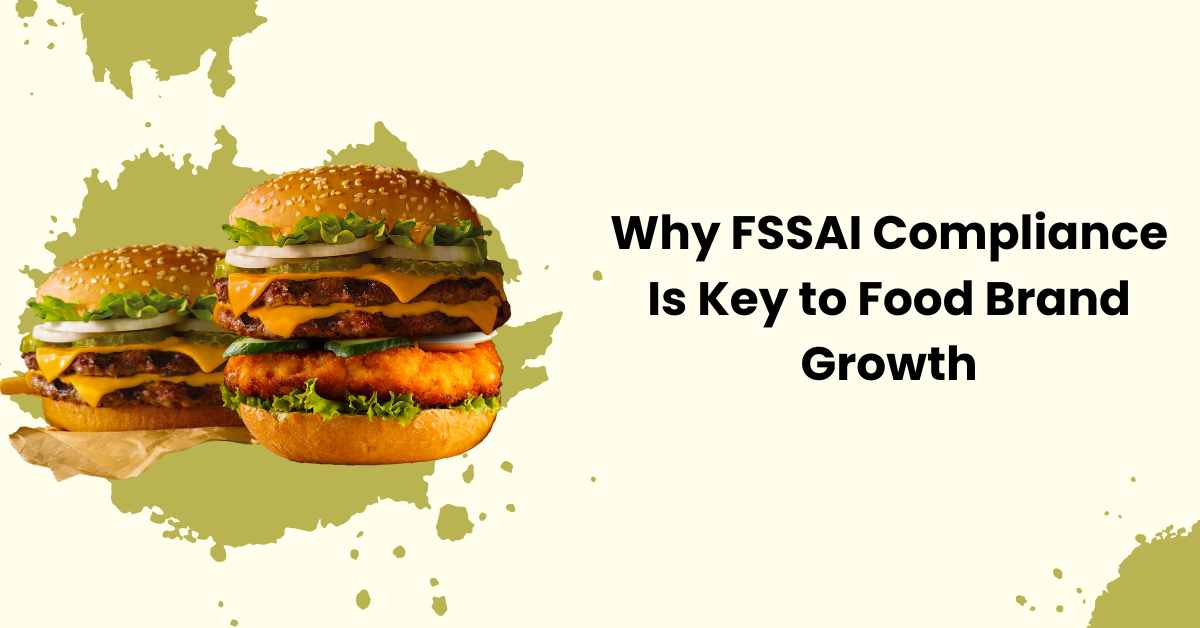The digital revolution has changed how people buy food. From ordering homemade snacks on Instagram to getting restaurant meals through Zomato, food is now just a click away. But behind every successful online food business is something many customers don’t see: a valid FSSAI license.
Whether you’re a home chef, food startup, cloud kitchen, or seller on platforms like Amazon or Swiggy, FSSAI Registration is not just a legal formality; it’s a key step in building a credible, safe, and trusted food brand online.
Let’s explore why FSSAI is important for online food sellers, how it protects you and your customers, and how you can get one easily.
What Is FSSAI?
FSSAI stands for Food Safety and Standards Authority of India, an autonomous body under the Government of India. It regulates and monitors the food industry to ensure that food sold in India is safe, hygienic, and meets quality standards.
Every food business — whether online or offline — needs to register with FSSAI and get a 14-digit license number, which must be printed on food packaging and displayed online.
Why Is FSSAI Registration Mandatory for Online Food Sellers?
Online food selling includes a wide range of businesses:
-
Cloud kitchens
-
Tiffin services
-
Bakery businesses
-
Food processors and packagers
-
Restaurants on delivery apps
-
Sellers on Amazon, Flipkart, Swiggy, Zomato, Dunzo, etc.
Whether you operate from home or a commercial kitchen, if you’re selling food online, FSSAI registration is mandatory under Indian law. Without it, your business is considered illegal and may face penalties or even shutdown.
Top Reasons Why FSSAI Is Important for Online Food Businesses
Let’s break down the major benefits and importance of FSSAI registration for food entrepreneurs selling online:
1. It’s a Legal Requirement
First and foremost, operating a food business without an FSSAI license is illegal. The Food Safety and Standards Act, 2006, mandates that all food businesses, including those online, must be registered.
Running without FSSAI approval can lead to:
-
Heavy fines (up to ₹5 lakhs)
-
Business closure
-
Product bans
-
Loss of reputation
By getting your FSSAI license, you avoid legal trouble and operate your business with peace of mind.
2. Builds Customer Trust
Consumers today are more aware and cautious about what they eat. They want assurance that the food they order is safe, hygienic, and approved by authorities. Displaying your FSSAI license number:
-
Builds customer confidence
-
Increases trust in your food quality
-
Encourages repeat purchases and referrals
-
Adds authenticity to your food brand
Without this, customers may hesitate to order — especially from a new or small business.
3. Mandatory for Listing on Delivery Platforms
If you want to list your business on Swiggy, Zomato, Amazon, or Flipkart, you must provide a valid FSSAI license. These platforms won’t allow food sellers without FSSAI registration because it’s their legal responsibility too.
So, if your goal is to grow your food business through online delivery apps, FSSAI is your entry ticket.
4. Ensures Food Safety and Hygiene
To get FSSAI approval, your business must follow basic food safety norms, such as:
-
Clean and safe food preparation
-
Proper storage and labeling
-
Use of safe raw materials
-
Hygiene in cooking and packaging
This not only protects your customers but also reduces food spoilage, returns, and complaints, which are critical in online businesses where reviews matter.
5. Helps in Branding and Marketing
FSSAI certification gives your food brand a professional image. You can:
-
Print the FSSAI number on the packaging
-
Mention it on your website or online shop
-
Highlight it in your marketing campaigns
This acts as a trust signal for new customers, helping your brand stand out in a crowded online space.
6. Makes Business Expansion Easier
If you plan to scale your business — launch new products, tie up with partners, or expand to new states — having a valid FSSAI license makes the process smoother.
It’s also useful when applying for:
-
Bank loans or government schemes
-
Selling in supermarkets or physical stores
-
Exporting your food products abroad
FSSAI is a foundation for long-term business growth.
7. Helps Avoid Penalties and Negative Reviews
Food complaints can be serious, especially online, where customer feedback is public. If someone falls sick after eating your food or finds unhygienic packaging, and you don’t have an FSSAI license, you may face:
-
Online backlash
-
Platform bans
-
Legal notices
-
Business loss
A license helps you prove that your business follows safety norms and protects you from legal and reputational risks.
Types of FSSAI Licenses
Depending on your business size, turnover, and location, you can apply for:
1. FSSAI Basic Registration – For small/home-based sellers with turnover up to ₹12 lakhs/year
2. FSSAI State License – For medium-sized businesses with turnover between ₹12 lakhs and ₹20 crores
3. FSSAI Central License – For large businesses operating in multiple states or earning above ₹20 crores
Most online food startups and home chefs start with the Basic Registration, which is affordable and easy to get.
Note: You can also Apply Tatkal FSSAI Registration from our website
Conclusion
In the world of online food delivery, customer trust and legal compliance are non-negotiable. Having an FSSAI license shows that you care about quality, safety, and professionalism — key ingredients for growing any successful food business online.
Whether you’re a home-based tiffin service or a rising food startup, FSSAI registration gives you the confidence to sell legally, grow safely, and compete smartly in the booming digital food market.



